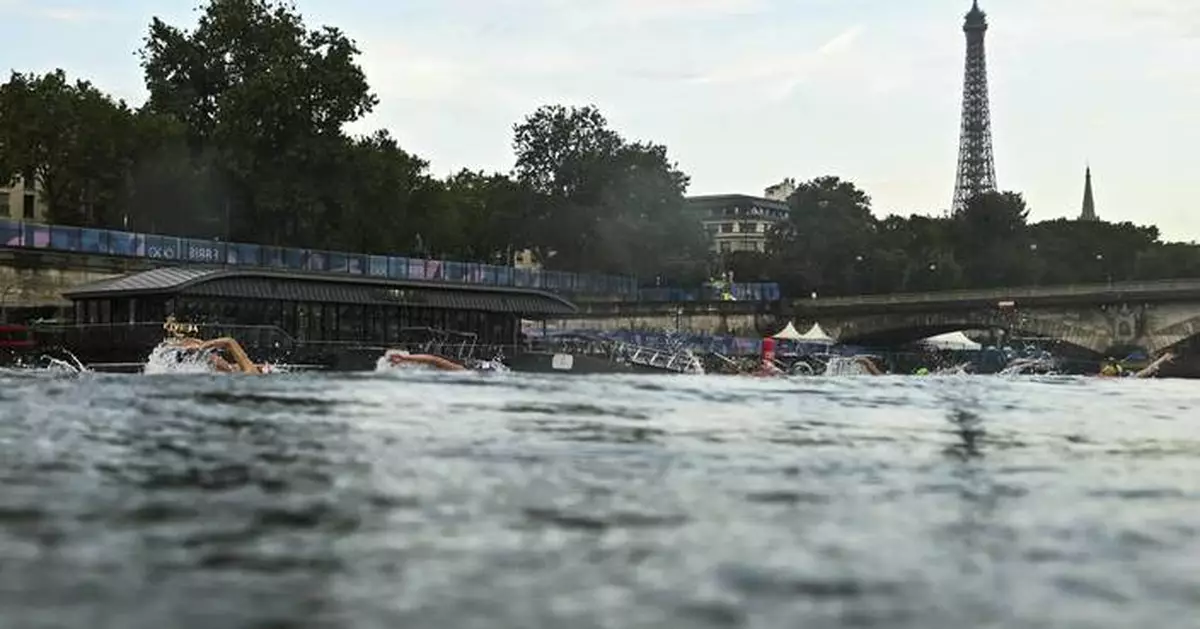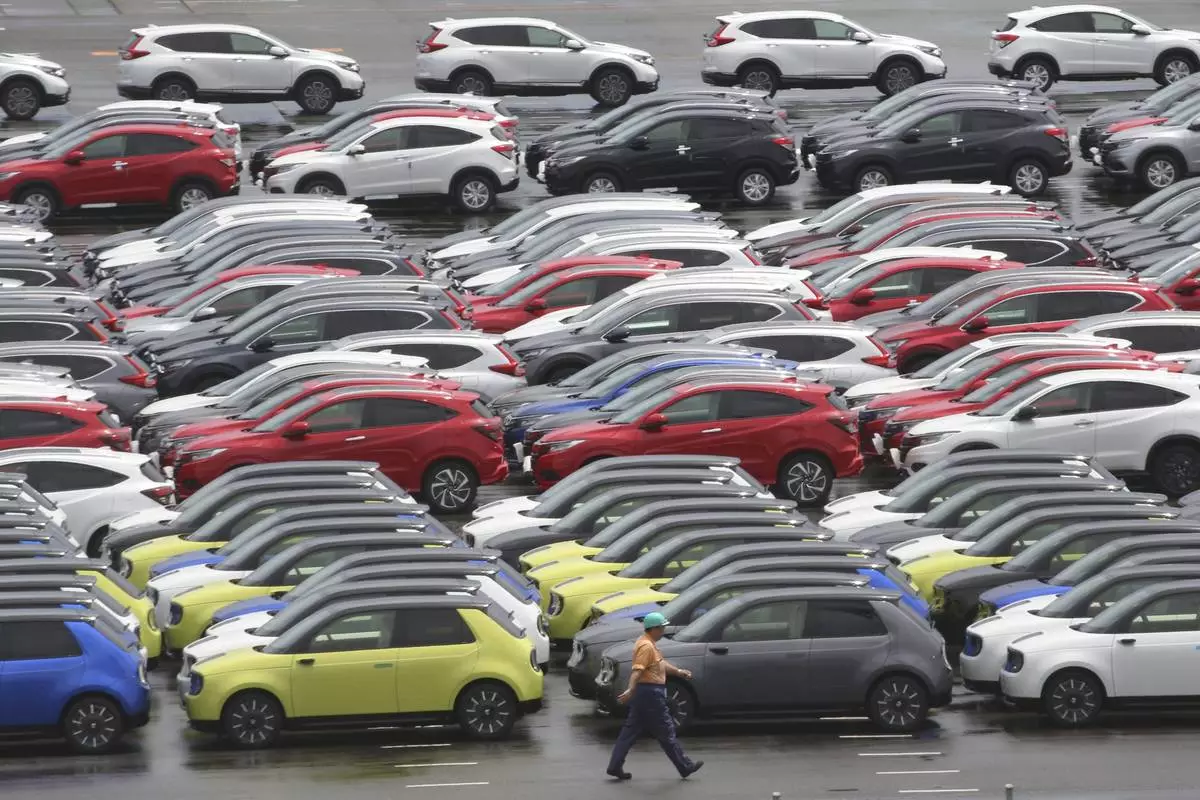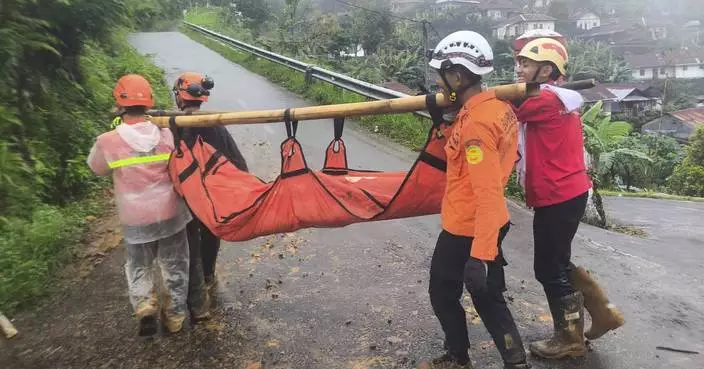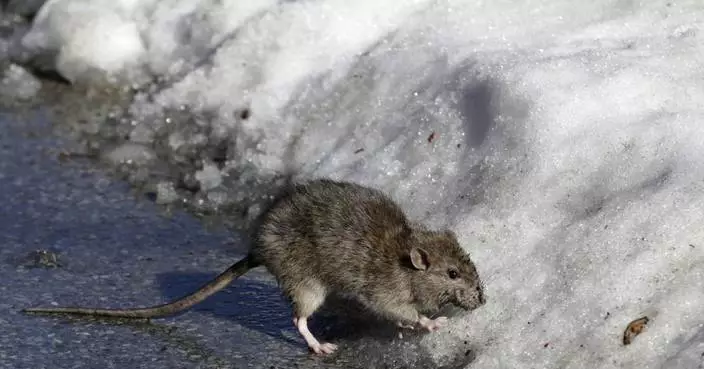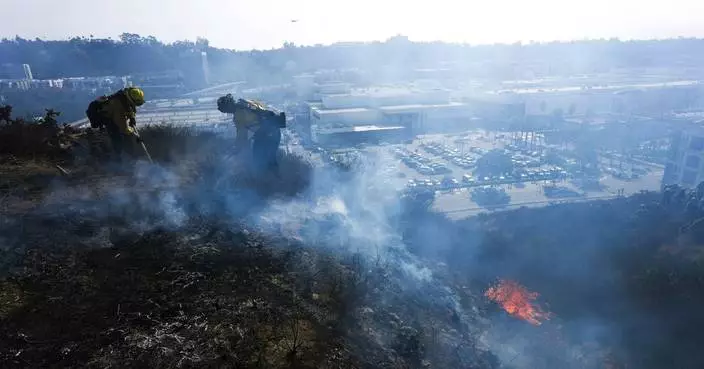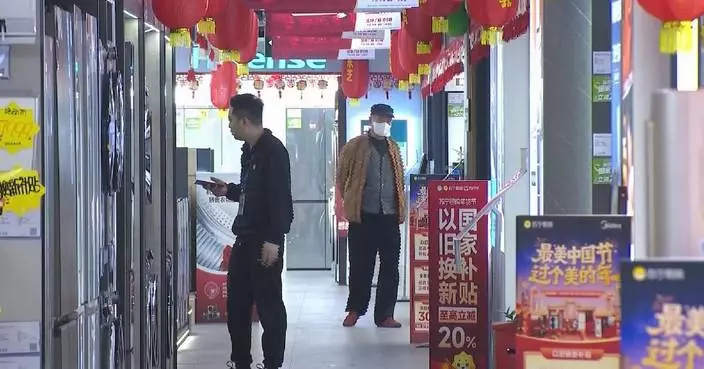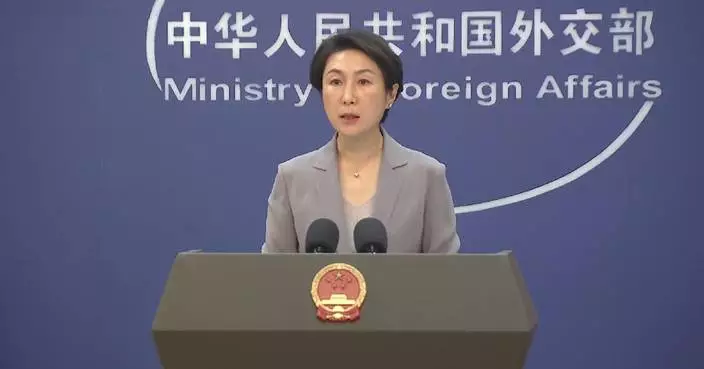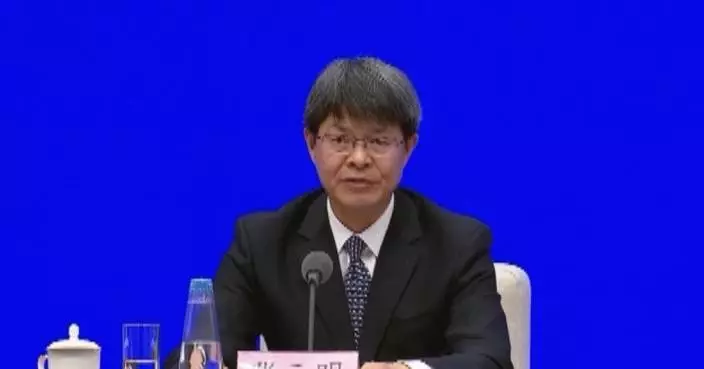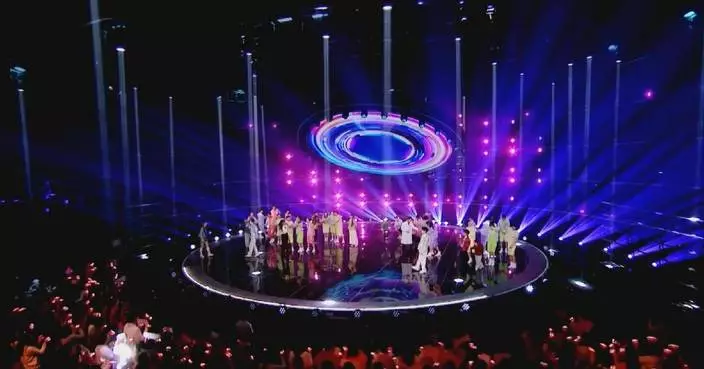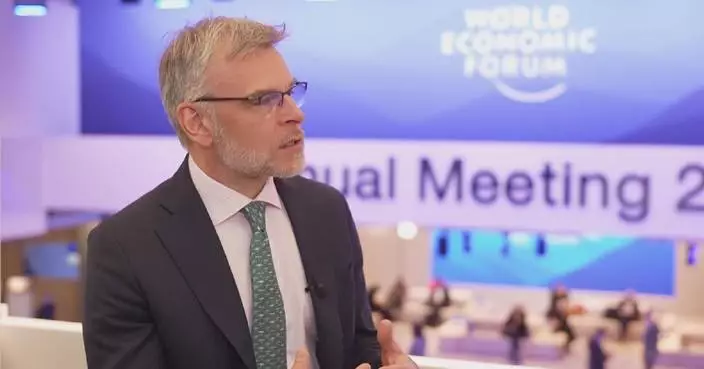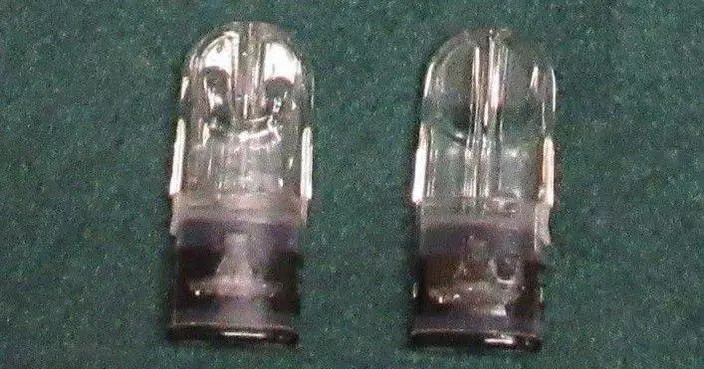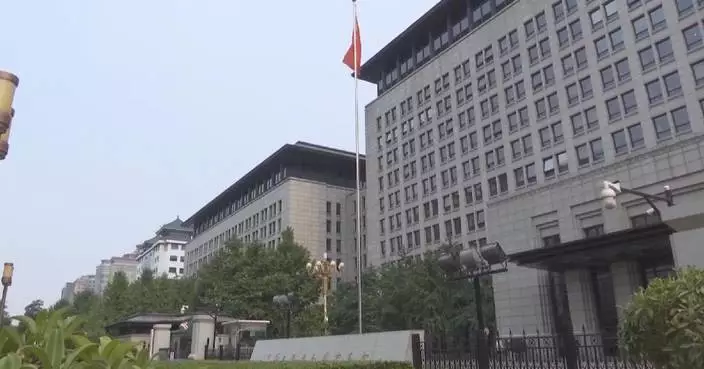PARIS (AP) — At the Paris Olympics, whether the water quality in the Seine River is safe enough to host some swimming events has been a major question.
Bacteria levels in the river fluctuate constantly, and daily water samples are tested so organizers can assess the risk and determine whether swims in the long-polluted Paris waterway should go forward.
Triathletes raced in the river Wednesday, and organizers said Sunday night that Monday's triathlon mixed relay event would be held as planned with the swimming portion in the Seine. Testing will continue ahead of the marathon swimming races scheduled for Thursday and Friday.
Here are some things to know about water quality testing in the Seine:
High levels of E. coli and enterococci indicate sewage or fecal pollution in the water. Most strains are harmless and some live in the intestines of healthy people and animals. But others can be dangerous.
Even a mouthful of contaminated water can lead to diarrhea, and illnesses such as infections in the urinary tract or intestines can result.
How susceptible a person is to falling ill from E. coli exposure depends on several factors, chief among them a person’s age and general health.
“Generally speaking, the healthier you are, the more likely you’re going to be to withstand any sort of pathogen,” said Brian Rahm, a biological and environmental engineering expert at Cornell University.
Sometimes it's not even the E. coli itself that's cause for worry, Rahm said. “When we see E. coli in the water, it indicates that other types of pathogens and other bacteria, viruses may also be in the water.”
Testing helps organizers assess the risk to athletes, but it's difficult to quantify the exact risk using that data, said Metin Duran, a professor of civil and environmental engineering at Villanova University.
“Unfortunately, there is not much to do prior to exposure to reduce the risk,” Duran said.
Swiss officials said Saturday that triathlete Adrien Briffod, who competed in the Seine three days earlier, fell ill with a stomach infection. But they said it was “impossible to say” whether it was linked to his swim in the river and that the other delegations told them none of their triathletes reported stomach problems.
The water quality in the Seine is linked closely to the weather. Heavy rains cause wastewater and runoff to flow into the river, causing bacteria levels to rise, while the sun’s ultraviolet rays can kill the bacteria.
And Paris has seen several downpours during the Games so far.
To deal with those contingencies, Paris made 1.4 billion euros ($1.5 billion) in infrastructure improvements ahead of the Olympics, including building a giant basin to capture excess rainwater and keep wastewater from entering the river, renovating sewer infrastructure and upgrading wastewater treatment plants.
Paris Deputy Mayor Pierre Rabadan said those improvements have made a big difference.
“We'll never keep rain events from having an impact on the water quality. That's not possible,” he said. “What we've done will allow us to return to a water quality that is satisfactory and good, like it was for the triathlon.”
Organizers have canceled multiple test swims this weekend and last week meant to let triathletes familiarize themselves with the course over water quality concerns following rain. The men's triathlon was postponed by a day, then went ahead Wednesday, the same day as the women's race.
Decisions on whether to cancel an event had generally been made in the wee hours of the morning on race day, but organizers on Sunday night announced their decision to go forward with Monday's race to give athletes more time to prepare.
Rabadan said infrastructure improvements prevent wastewater from flowing into the Seine. It rained Wednesday as the triathletes competed. Wastewater entering the river upstream would take several hours to reach Paris, meaning that the water quality levels were still safe at the time of that race, he said.
Since then, there was a heavy downpour Thursday night and it also rained Saturday evening.
Organizers have said they consider samples taken from the river 21 and a half hours earlier to allow time for cultures to develop in a lab.
Daily water quality tests measure levels of the fecal bacteria, including E. coli. World Triathlon’s water safety guidelines and a 2006 European Union directive assign qualitative values to a range of E. coli levels.
Under World Triathlon’s guidelines, E. coli levels up to 1,000 colony-forming units per 100 milliliters can be considered “good” and can allow competitions to go forward.
World Triathlon in an email called the European Union’s 2006 directive “the most complete guidelines for bathing water,” based on the range of factors it takes into account. Other organizations, including the U.S. Environmental Protection Agency, set a limit of 126 units per 100 milliliters of water and say that higher levels aren’t suitable for recreational use.
In deciding whether events can be held in the river, World Triathlon’s medical committee said it considers water quality analysis, sanitary inspection and the weather forecast.
A day after Wednesday's competitions in the Seine, data released by World Triathlon showed that a sample taken at 6 a.m. Wednesday at the Pont Alexandre III, the bridge where the swimming segment began and ended, showed a level of 249 units. Samples from other points along the course were at similar levels.
Dan Angelescu, founder and CEO of Fluidion, a Paris and Los Angeles-based water monitoring tech company, says the tests have “shortcomings” and “undercount severely the bacteria.”
Fluidion is testing the water several times a day, and Angelescu said, “What we see is that water quality is not as good as those measurement data that the city publishes,” resulting in “an underestimation of the actual risk.”
The company measures both “free floating” bacteria in the water and takes a “comprehensive” level that Angelescu says also includes bacteria attached to fecal or sediment particles. He said the comprehensive count provides a more complete picture than the lab test the city is using.
He likened it to watching a busy road with pedestrians, motorcycles, cars and buses and trying to count all the people. The city’s method, he said, is akin to counting from a helicopter and weighting each person or vehicle equally because you can’t see how many people are inside each car or bus. He says his comprehensive test is more like a police officer stopping each vehicle and counting each person inside the cars and buses to get a complete count.
Angelescu said he discussed these discrepancies with city officials and that they decided to continue with the standard laboratory method they had been using, which complies with regulations. That was a “fair decision in view of the regulations,” he said. “The problem is the regulations are wrong.”
Rahm of Cornell University said that, ultimately, “from a public health perspective. it doesn’t matter whether it’s free flowing or trapped inside a dirt particle. It’s going to get inside your body one way or another.”
Naishadham reported from Washington. AP journalists Jeffrey Schaeffer in Alfortville, France, and Angela Charlton, John Leicester and Ahmed Hatem in Paris contributed.
AP Olympics: https://apnews.com/hub/2024-paris-olympic-games
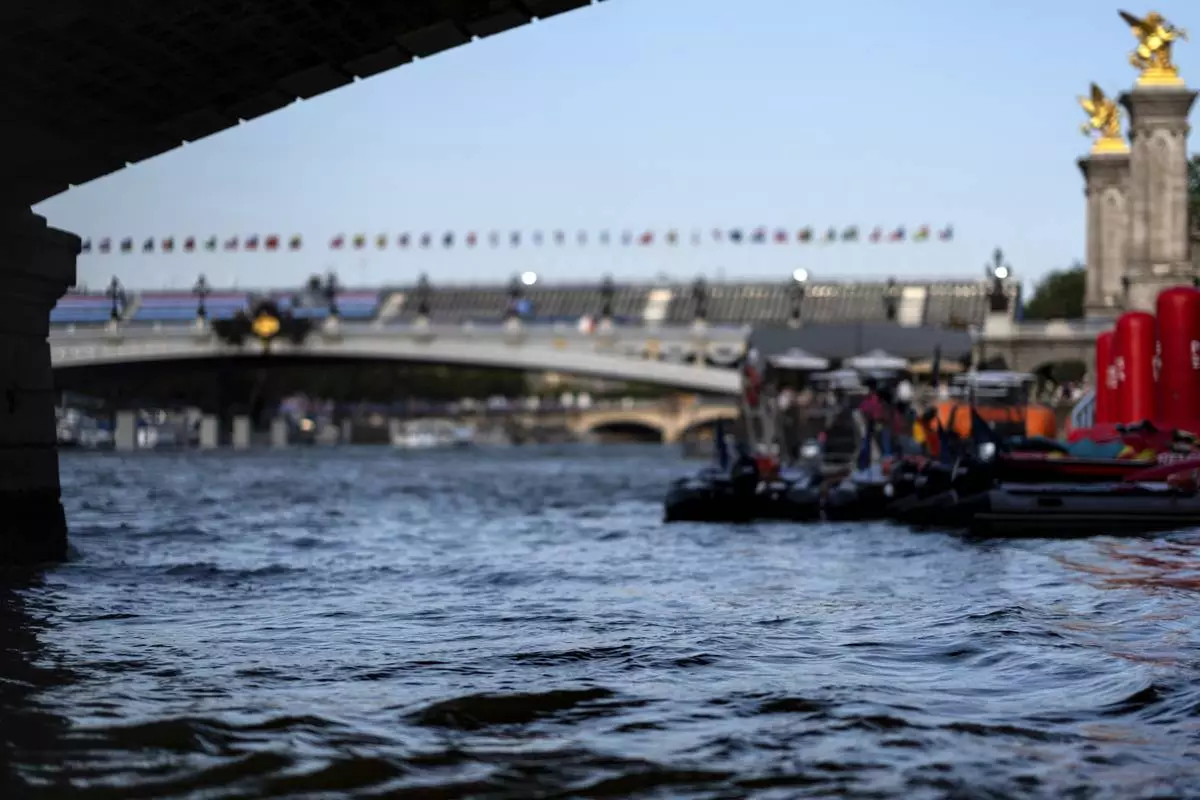
The Seine River flows in front of the Pont Alexandre III bridge, site of the triathlon events at the 2024 Summer Olympics, Monday, July 29, 2024, in Paris. As the Olympics continue in Paris, the Seine River's water quality remains a major area of concern for officials. Organizers of the triathlon event cancelled swimming practice on Monday for the second day in a row because of poor water quality. Event organizers hope sunny weather will make swimming viable on Tuesday when the triathlon begins. (AP Photo/David Goldman)
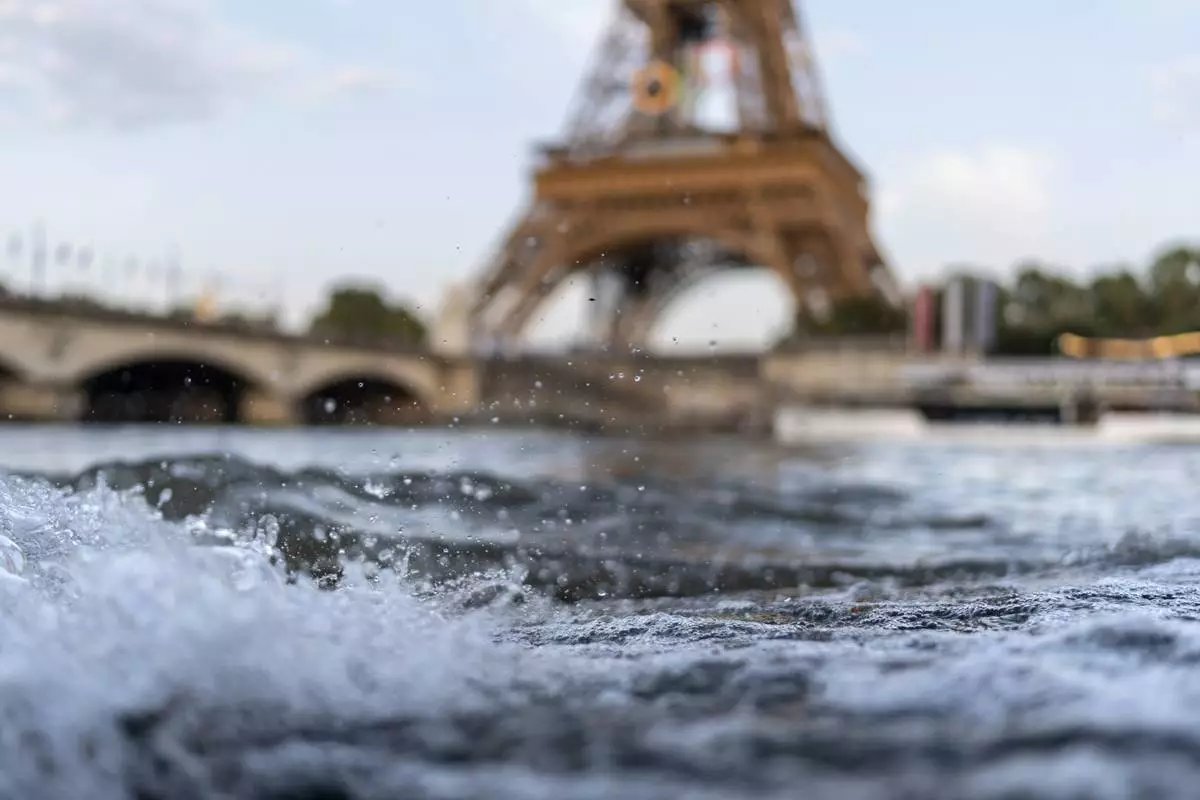
Waves crash along the banks of the Seine River in front of the Eiffel Tower during the 2024 Summer Olympics, Monday, July 29, 2024, in Paris. As the Olympics continue in Paris, the Seine River's water quality remains a major area of concern for officials. Organizers of the triathlon event cancelled swimming practice on Monday for the second day in a row because of poor water quality. Event organizers hope sunny weather will make swimming viable on Tuesday when the triathlon begins. (AP Photo/David Goldman)
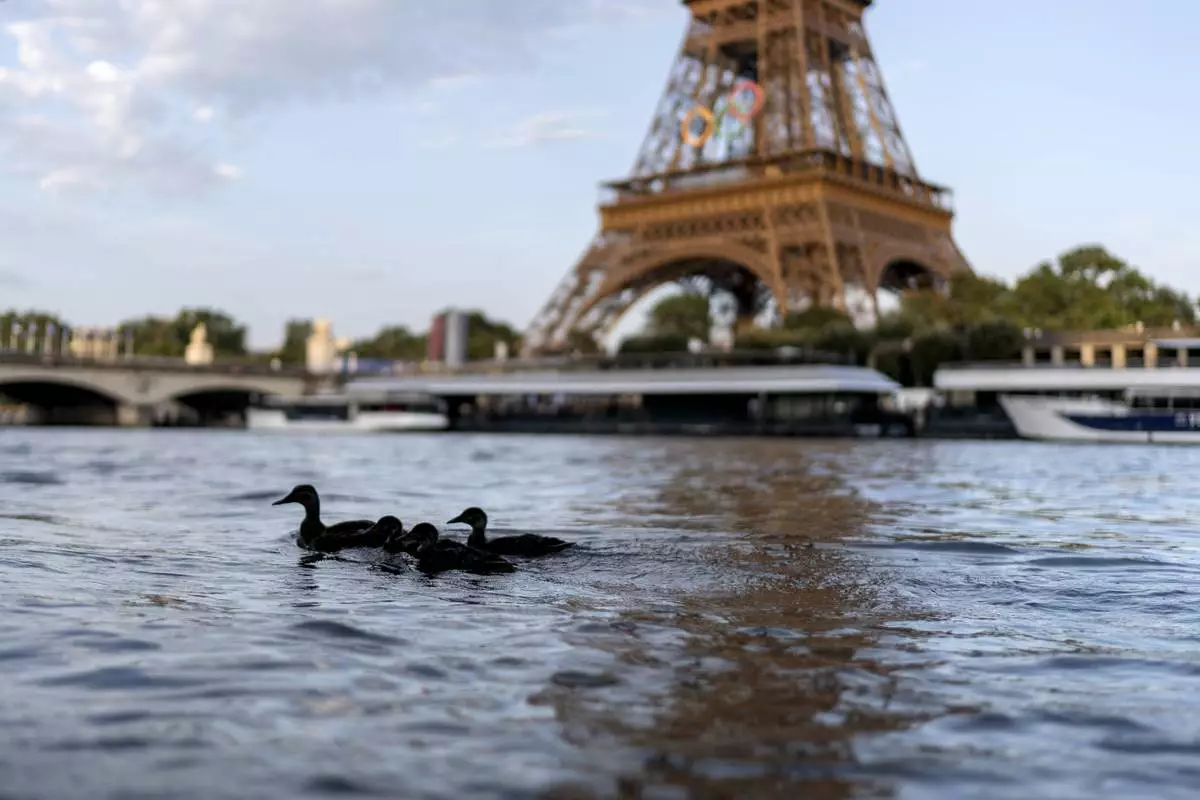
Ducks swim along the Seine River in front of the Eiffel Tower during the 2024 Summer Olympics, Monday, July 29, 2024, in Paris. As the Olympics continue in Paris, the Seine River's water quality remains a major area of concern for officials. Organizers of the triathlon event cancelled swimming practice on Monday for the second day in a row because of poor water quality. Event organizers hope sunny weather will make swimming viable on Tuesday when the triathlon begins. (AP Photo/David Goldman)
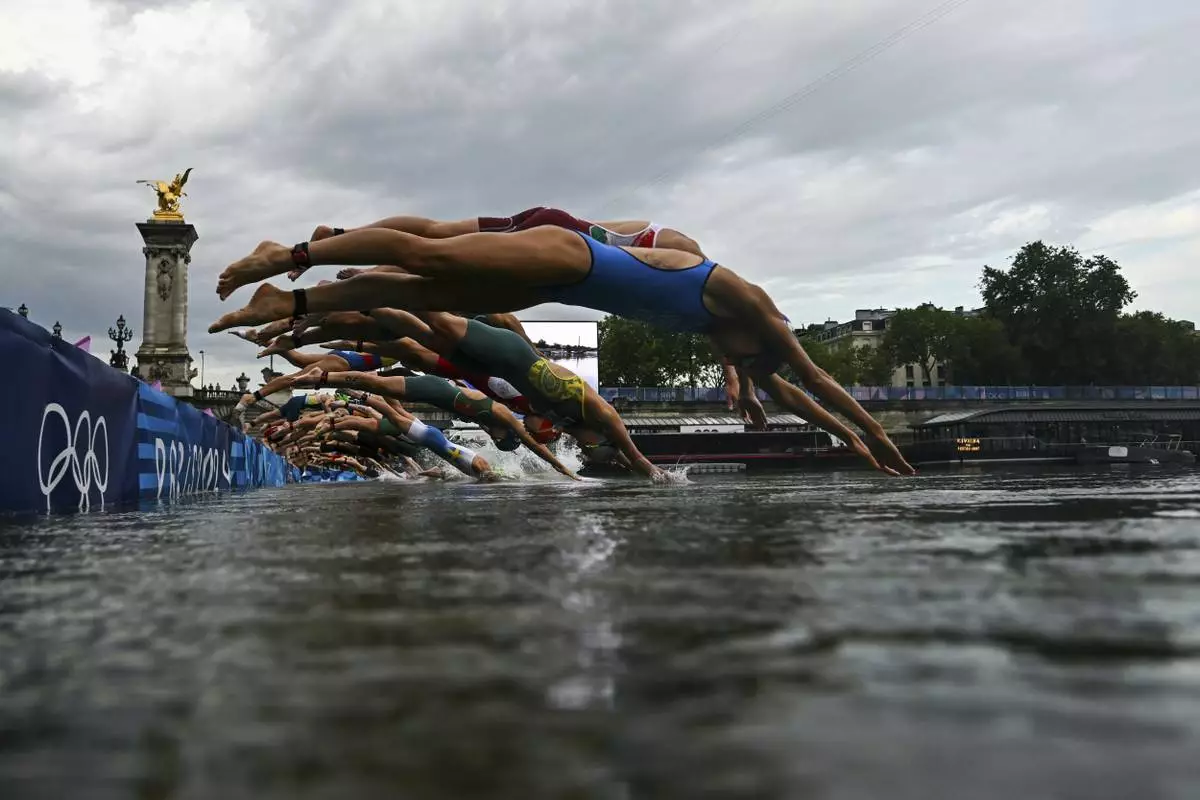
Athletes compete in the swimming race in the Seine during the women's individual triathlon at the 2024 Summer Olympics, Wednesday, July 31, 2024 in Paris, France. (Martin Bureau/Pool Photo via AP)
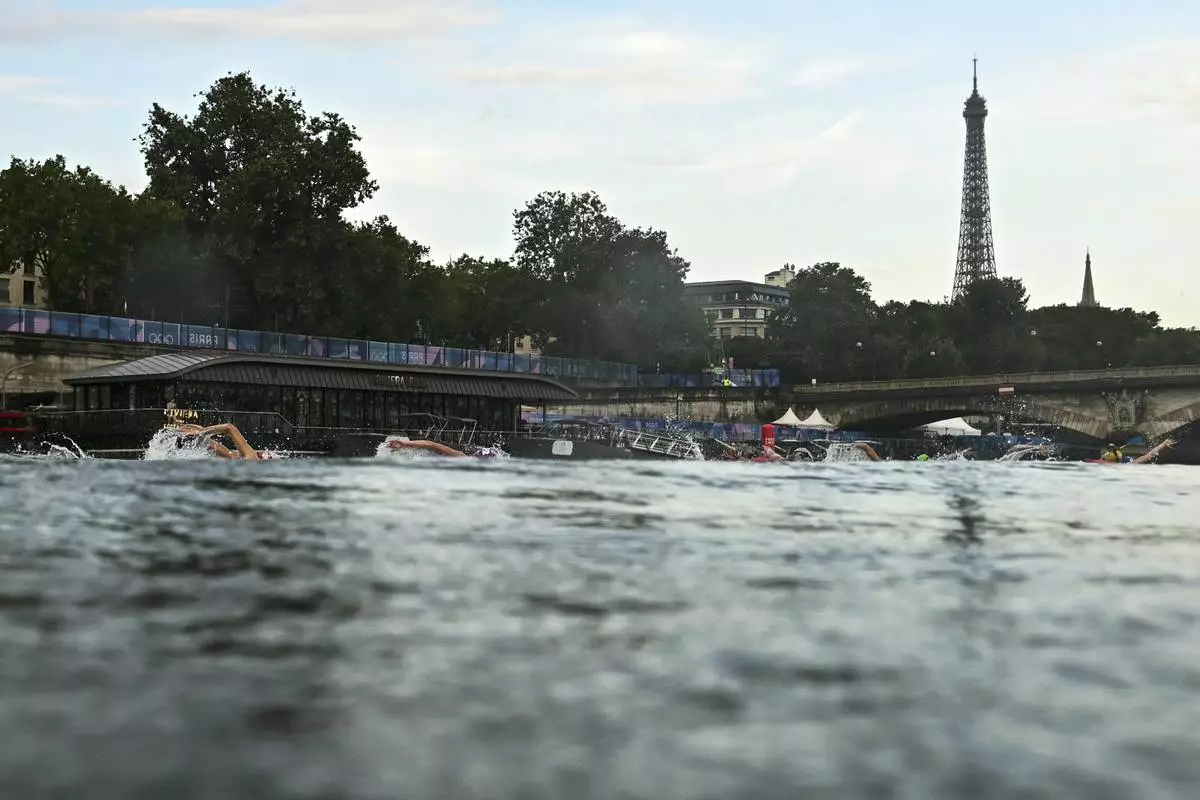
Athletes compete in the swimming race in the Seine River during the women's individual triathlon at the 2024 Summer Olympics, Wednesday, July 31, 2024, in Paris, France. (Martin Bureau/Pool Photo via AP)


